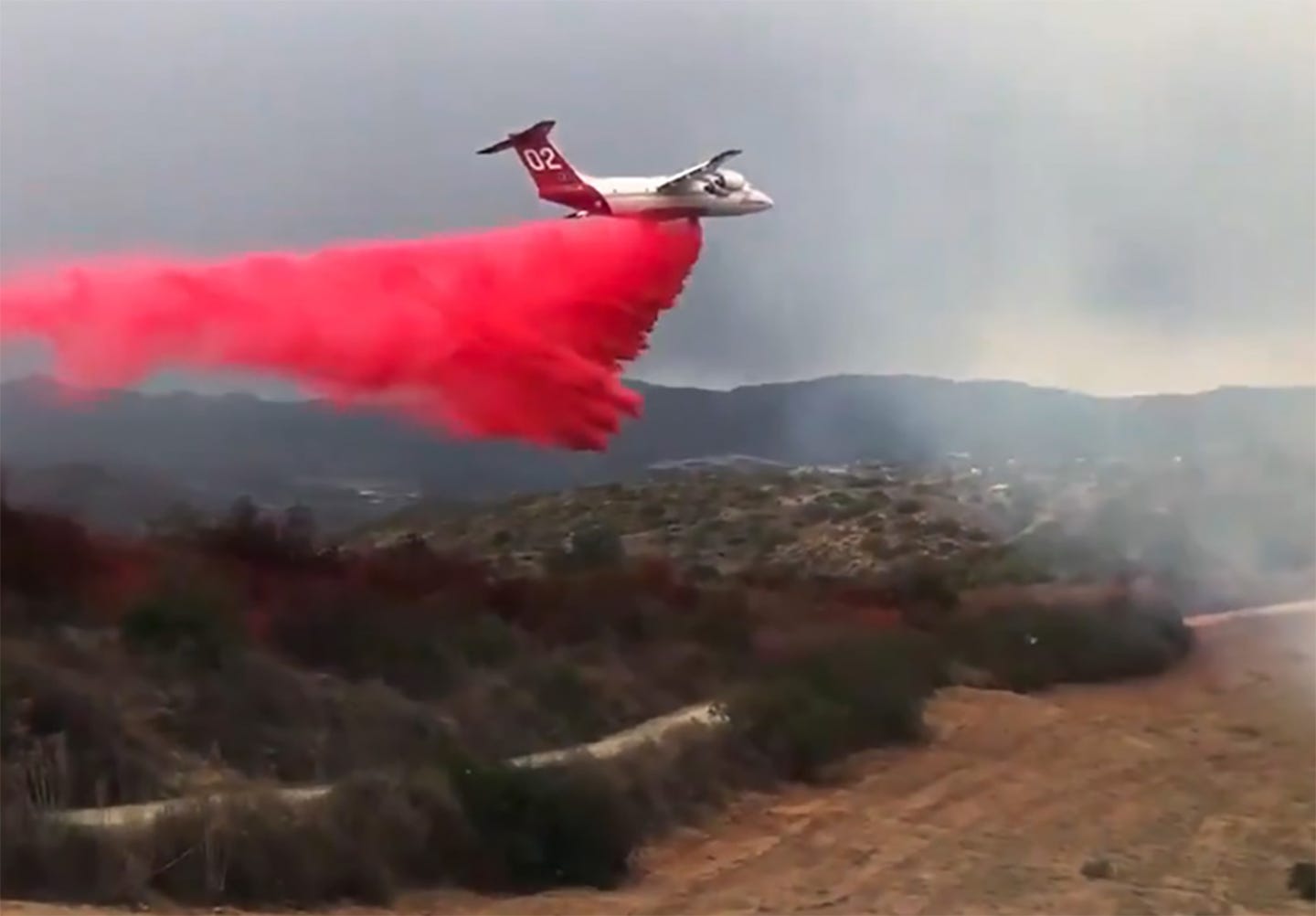Aerial retardants — the chemicals dropped from helicopters and airplanes to try to stop wildfires — have been in the news.
Court ruling — or end run by Congress — this story is evolving
AS I SHARED earlier HERE, there has been controversy about the use of chemicals in aerial retardants used in fighting wildfires.
A headline in the Los Angeles Times today: “Aerial fire retardant drops are attacked as ineffective and environmentally harmful.” The story shares concerns of the organization FSEEE
— Forest Service Employees for Environmental Ethics — that aerial fire retardant contains cadmium, a toxic heavy metal that finds its way into streams, rivers and lakes after being dropped as part of retardant.
According to the LA Times and other sources, the Forest Service isn’t arguing about the impact of the chemical — it’s asked the Environmental Protection Agency to develop a permit that might allow the agency to continue to use retardant — but getting the permit could take several years.
Faced with that information, some California communities have petitioned to join the FSEEE’s lawsuit against the Forest Service in Montana and U.S. Reps. Jimmy Panetta (D-Carmel) and Doug LaMalfa (R-Richvale) have introduced a bill that would explicitly exempt firefighting agencies from having to obtain a permit for retardant use.
As reported in the Plumas News, Representatives Panetta and LaMalfa introduced the Forest Protection and Wildland Firefighter Safety Act of 2023 on March 14. The bill creates a Clean Water Act exemption for federal, state, local, and tribal firefighting agencies to use fire retardants to fight wildfires.
Their bill, H.R.1586, had 28 co-sponsors (all but three Republicans) as of this morning. And a bill with the same title, S796, introduced by Cynthia M. Lummis (R-Wyoming) on March 14, has five co-sponsors, all Republicans.
Here’s an excerpt from the LA Times piece:
The case is being watched particularly closely by officials in California, where an extremely wet winter is likely to stoke the growth of so-called connecting fuels — grasses that can carry small flames from a spark on a roadway to chaparral and forested areas.
“This is going to destroy towns and many communities in California, if they allow this to go through,” said Paradise Mayor Greg Bolin, whose town was razed by the Camp fire in 2018. “To maybe save a few fish, really?”
Will a court ruling impact aerial firefighting across the country? Will legislators manage an end run around the court? Stay tuned. — Claudia Elliott




